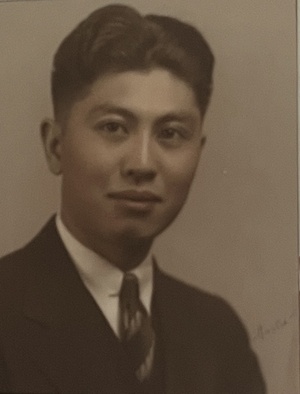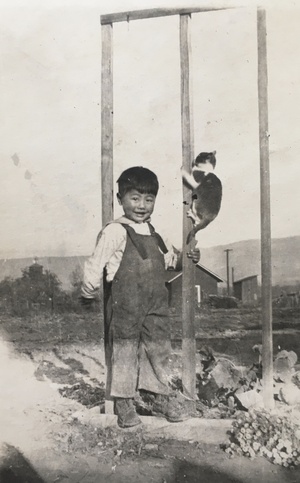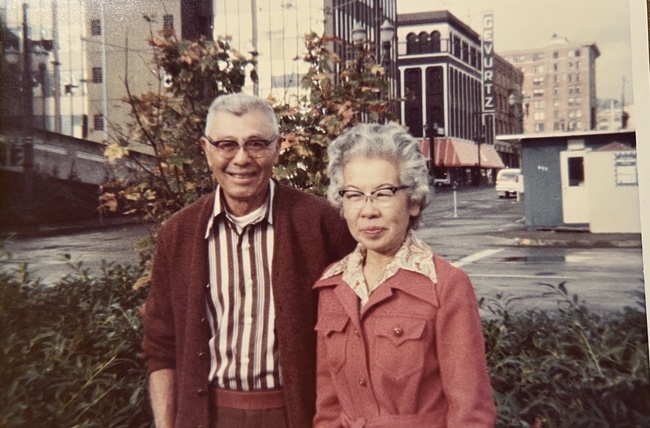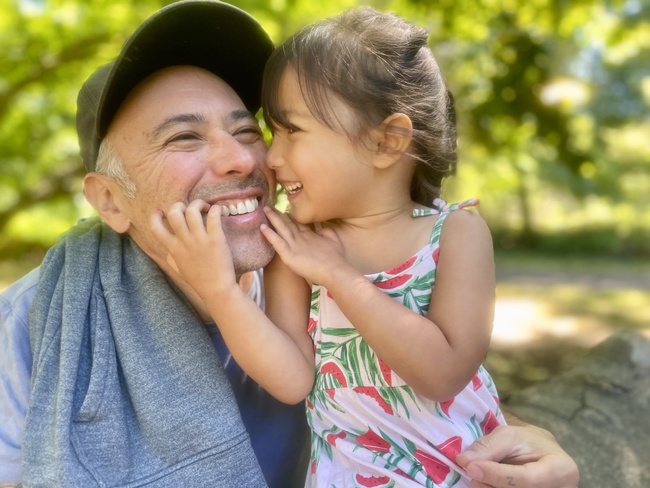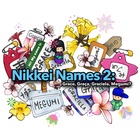At the time of the forced incarceration during World War II, Makoto was twenty-nine years old, and he had already lived through a string of racist policies targeting Asian immigrants and their families. He and my grandmother, Miyoko (Mary) Migaki were married less than two months before their forced removal. I wonder what the wedding felt like, for them and for their guests. Could they enjoy the inari, the futomaki, and the tsukemono through their worry? Was washoku (Japanese food) even served?
In the days and weeks following Pearl Harbor, our community purged all things Japanese in a vain attempt to not be linked to the enemy—family heirlooms and photos burned, 78 rpm records shattered, silk kimonos trashed; a mass erasure of culture and tradition. And still, we were taken away. Our belongings didn’t matter. It was our dark hair, almond eyes, and the sound of our names that sealed our fate.
Zenkichi, Makoto’s father, describes the fear of leaving the house prior to their removal: “We were warned by friendly neighbor, be careful to going out, because some of the men boasting kill the first Japanese come to his way to avenge his son’s death at Pearl Harbor.”
On June 5, 1942, our family was forcibly removed from our home in the Yakima Valley, Washington, and taken to live in crudely transformed horse stalls of former stockyards at the Portland Assembly Center.
“...we had been told pack up our clothing and other, as little as can. Just limit to immediate, everyday use, and all our things to store in the private place at our own risk on government designated warehouse. So we just pack our clothes and other few necessities, waiting the order to board a train carry us somewhere… We arrived Portland Oregon next morning and we found our temporary camp in the livestock sales building by the Columbia River, with barbed wire fence around and soldiers guarding with the gun…All building were for livestock, so ill-smelling all over, even after fixed up and clean up… There is no privacy in this camp restroom, bathrooms all open to the public sight/view…”
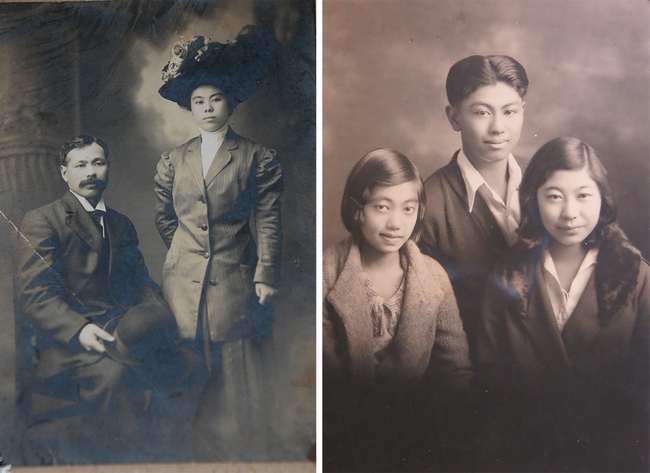
After Portland they were sent to the Minidoka concentration camp for an unknown duration, until Zenkichi was able to find farm labor work outside the evacuation zone and eventually send for the rest of the family.
“My wife (Hagino) was so glad to live in freedom instead the camp, guarded by armed soldier and live on government handout. She say ‘it is good to eat the meal which my own husband’s work provide, feel like real somebody.’”
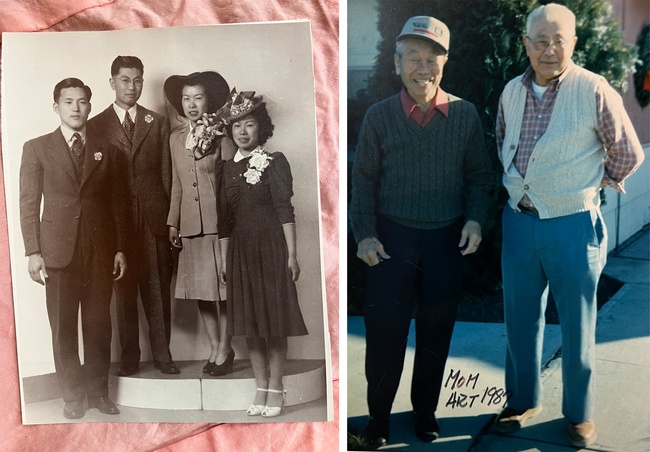
My grandfather struggled with deep depression for much of his post-war adult life. In the worst of times he would cower behind the bed in the back room if anyone came to the house, afraid to face the outside world, while my grandmother ran the farm, raised the kids, and held the family together. He was a quiet man, but he liked to joke around. He’d tease me and my brother when we were young and say, “you rat, you hound,” which seems ironic being that this beautiful young man, this American citizen, was called a rat (and worse), robbed of his dignity, and left with an unfathomable emptiness.
I’m thankful to my parents for giving me the middle name Makoto in honor of him. I’ve lived with the name Paul for 47 years. I want to live the rest of my years in this world as Mako, because I can. My grandfather couldn’t. The pressures were too great and his name, Makoto, was one of the things that needed to be erased for his survival.
Cheers to you ojiichan Makoto, you rat, you hound.
* * * * *
Our Editorial Committee selected this article as one of her favorite Nikkei Names 2 stories in English. Here is her comment.
Comment from Kristen Nemoto Jay
While all of the stories had their own unique and wonderful messages of resilience, love over hate, and perseverance, the one that stood out to me the most is “Mako” by Mako Kikuchi.
His piece took me on a journey through his family’s history - dissecting parts that have been ugly to them while remaining reflective and resilient. Mako, formerly Paul, Kikuchi’s tribute to his grandfather, Arthur Makoto Kikuchi, by being called “Mako” because his grandfather “couldn’t,” moved me to tears. His deep connection to who he is, and his willing acceptance of kuleana (Hawaiian word for responsibility) on how to carry his family’s name moving forward, has made me highlight this story as my favorite one. Well done.
© 2024 Mako Kikuchi
Nima-kai Favorites
Each article submitted to this Nikkei Chronicles special series was eligible for selection as the community favorite. Thank you to everyone who voted!


